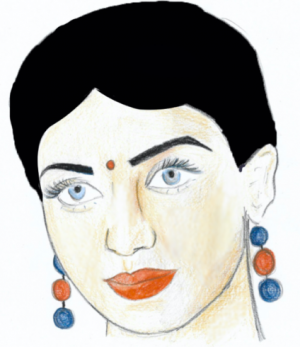Lights, camera, activism: 77th Golden Globes strives for activism
February 5, 2020
The 77th annual Golden Globe Awards in Los Angeles on Jan. 7 emphasized activism on issues ranging from women’s rights to climate change, although this focus was not without controversy.
The emphasis on social issues began at an institutional level, with the Golden Globes serving water in glass bottles to reduce plastic pollution and becoming the first major awards show to serve an all-vegan meal to attendees. Hollywood Foreign Press Association (HFPA) President Lorenzo Soria explained in a Facebook post that the decision was driven by the detrimental impact of animal agriculture on carbon emissions. “The climate crisis is impossible to ignore and after speaking with our peers and friends in the community, we felt challenged to do better,” Soria said.
Climate change activism was a common theme throughout the awards. In particular, Russell Crowe, who won Best Actor in a Miniseries or Television Film, was not present to accept his award because he was with his family fighting the Australian bushfires. In his place, actress Jennifer Aniston read a statement he had written.
“Make no mistake, the tragedy unfolding in Australia is climate change-based,” Aniston said on Crowe’s behalf. “We need to act based on science, move our global workforce to renewable energy, and respect our planet for the unique and amazing place it is. That way, we all have a future.”
Numerous other actors made statements in support of Australia and climate change action, such as Ellen DeGeneres, Patricia Arquette, Cate Blanchett and Phoebe Waller-Bridge. Notably, Waller-Bridge said she would auction off the Australian-designed outfit she wore to the Golden Globes and donate the proceeds to fire relief efforts.
In addition to discussions of climate change, Michelle Williams, who won Best Actress in a Miniseries or Television Film, used her acceptance speech as a platform to advocate for reproductive and women’s rights. Williams explained that she would not have attained success in the acting industry without the right to choose when and with whom she would have children, calling on women to mobilize in the next elections to support female issues.
“Women, 18 to 118, when it is time to vote, please do so in your own self-interest,” she said. “It’s what men have been doing for years, which is why the world looks so much like them. Don’t forget: we are the largest voting body in this country. Let’s make it look more like us.”
The activism continued into the after-party. Among the Hollywood stars was activist and current Harvard student Nadya Okamoto, the 21-year-old founder of PERIOD, a nonprofit organization aiming to destigmatize the period and end period poverty. As a new L’oréal ambassador, Nadya discussed her goals to take down the period tax in the 32 states it remains in, while also making period products more accessible.
In a red carpet interview, she expressed what the event meant to her: “For me to be able to talk to you on this carpet and say like, ‘OK, periods are natural and should be treated as a necessity,’ is amazing.”
However, the activism at this year’s Golden Globes was not met without controversy. For instance, several criticized the all-vegan meal as giving attendees no choice. Golden Globes host Ricky Gervais also explained the hypocrisy he saw in the meal, telling Access Hollywood before the show, “I think it’s a good idea that 800 people are trying to save the planet. And arriving all in separate limos to have some veg.”
In a similar vein, Joaquin Phoenix, who won Best Actor in a Motion Picture Drama, praised the all-vegan meal but called on celebrities to take other concrete steps to align with their advocacy on climate change. “It’s really nice that so many people have come up and sent their well wishes to Australia, but we have to do more than that, right?” he asked. “We don’t have to take private jets to Palm Springs for the award sometimes, or back.”
On a broader level, during his opening monologue, Gervais often centered on the hypocrisy he saw in Hollywood and specifically criticized the use of award acceptance speeches to make political statements.
“If you do win an award tonight, don’t use it as a platform to make a political speech,” he said. “You’re in no position to lecture the public about anything. You know nothing about the real world. So, if you win, come up, accept your little award, thank your agent and your God, and f*ck off.”
Overall, activism at this year’s Golden Globes continued a long tradition of the overlap between politics and entertainment. However, as political statements have become more common at awards shows, so have critiques of such stances.
Nonetheless, this year’s activism at the Golden Globes put a whole new political spin on “lights, camera, action.”





